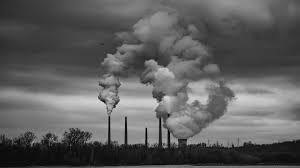Researchers from the University of Oulu, Finland, investigated how air pollution affects students’ performance in matriculation exams, particularly in mathematical subjects. The study revealed that performance declines in exams involving thinking and memorization when fine particulate matter (PM2.5) levels in the school’s vicinity increase even slightly.
The research is the first to examine the same student’s performance in a test measuring the same skill in a short time frame. Skills refer to linguistic and mathematical abilities, measured by exams in the Finnish language, writing, reading, mathematics, and physics.
Researchers from the University of Oulu Business School examined the effects of very short-term exposure to air pollution on students’ performance in matriculation exams in Finland from 2006 to 2016.
According to the study, a one-unit increase in PM2.5 particle concentration (particles smaller than 2.5 micrometers) reduced the average student’s performance in a mathematical exam by approximately 0.13 percentage points compared to performance in a similar exam with lower fine particulate concentrations.
The study found no impact on linguistic skills due to an increase in fine particulate matter, and there were no gender differences observed.
Researchers were surprised to find significant effects on matriculation exam performance in Finland, a country with relatively low air pollution levels. This is the first time such effects have been demonstrated in Finland. The researchers emphasize that even in countries like Finland, where air pollution levels generally comply with the World Health Organization’s recommendations, reducing air pollution remains crucial.
“Increasing evidence suggests that exposure to air pollution during exams may have a decisive impact on the progression of students into further studies, especially if matriculation exam results are used as a significant selection criterion,” says University Researcher Marko Korhonen.
The primary data for the study came from Statistics Finland, covering all matriculation exams in Finland from spring 2006 to autumn 2016, including 22 academic terms. The study included over 370,000 final exams from Finnish high schools, involving 172,414 students from 253 schools in 54 municipalities.
Student performance was assessed using hourly air quality measurements from monitoring points located near the exam venues. The structure of Finnish high school final exams, where students take multiple exams in different courses, allowed the examination of each student’s test results in various final exams. Exams were conducted on different days in the same schools, and air quality was measured during the exams near each school.
The study, titled “The impact of ambient PM2.5 air pollution on student performance: Evidence from Finnish matriculation examinations,” has been published in Economics Letters.
For more such insights, log into our website https://international-maths-challenge.com
Credit of the article given to University of Oulu


